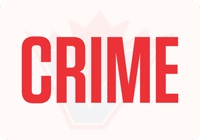CANADIAN Blood Services says that fewer regular donors during the COVID-19 pandemic has resulted in the smallest donor base in a decade and has stalled its efforts to replenish a critically low national blood inventory. To recover, the organization says it is shining a light on the need for 100,000 new donors to join “Canada’s Lifeline” this year to ensure patient needs can be met.
“During National Blood Donor Week, we are calling on more people across Canada to book an appointment to donate blood, plasma, and platelets to keep Canada’s Lifeline strong,” says Rick Prinzen, Canadian Blood Services’ chief supply chain officer and vice president of donor relations.
“The number of people across Canada who donate regularly has decreased by 31,000 donors since the start of the pandemic, which has put a strain on the existing donor community. Many of our regular donors already donate multiple times a year. We are grateful for the donors who have continued to support patients.”
He adds: “Right now, we have compounded losses in donors due to COVID-19 and not having the ability to recruit new donors at in-person community events because of restrictions over the past two years. Patient lives depend on new donors coming forward. Donors are vital links in Canada’s Lifeline who improve the lives of patients every day.”
Prinzen notes that patients like Eric Polo count on blood donors. He receives blood products every month for a rare condition that affects the production of red blood cells. “Eric’s body doesn’t produce many red blood cells,” explains his mother, Daphne.
At age 15, Eric has already received over 200 blood transfusions, and he will require them for the rest of his life. “I am thankful for what blood donors do. They keep me alive,” says Eric. His mother agrees. “Really, blood donors are our heroes,” says Daphne. “I get emotional every time I talk about it. Without them, Eric wouldn’t have lived more than a few weeks.” See Eric’s story.
Other patients rely on receiving blood, plasma, and platelets during cancer treatments, traumas and childbirth. “We are extremely grateful to all donors who have shown up throughout the pandemic. Their dedication has sustained the national blood system, but these donors cannot carry it all — our country needs new blood donors now.” Even within current donor eligibility, in Canada, one in two people are able to donate blood, but only one in 81 actually do. “If you are eligible to donate, and currently do not, we ask you to join Canada’s Lifeline and book an appointment to make your first donation,” says Prinzen.
Canadian Blood Services says that not only does it need to recruit more donors, it also needs to build a more diverse donor base in order to meet complex and underserved patient needs. Rare blood patients, for example, often rely on donors with hard-to-match backgrounds. It is therefore working to build relationships with racialized and Indigenous donor communities and remove barriers to donation.
Like other health-care organizations in Canada and other blood operators around the world, the latest COVID-19 wave has challenged Canadian Blood Services like never before. COVID-19 has led to appointment cancellations at a time of year when collecting blood is already challenging. There is an immediate need for donors across the country to fill thousands of open appointments this summer to ensure patient needs continue to be met.
“We often see a dip in donor turnout when the weather improves and people go on vacation,” says Prinzen. “Patients in Canada need people to book and keep their appointments throughout the summer to provide lifesaving products, especially as summertime activities, such as travel, can increase the need for blood.”
Legislated by the Government of Canada in 2008, National Blood Donor Week (June 12–18) recognizes donors who selflessly help their fellow citizens. World Blood Donor Day falls on Tuesday, June 14. Landmarks across the country will be lit up red during National Blood Donor Week to shine a light on the need to support Canada’s Lifeline, and mayors in various cities will be calling on residents for their support.
To be one of the 100,000 new donors, download the GiveBlood app, visit blood.ca or call 1 888 2 DONATE (1-888-236-6283) to join Canada’s Lifeline and book an appointment.













